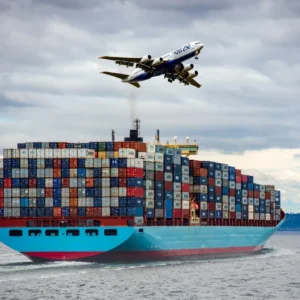Car recovery after an accident can feel daunting, whether it’s a minor scrape or a serious collision. In those stressful moments, knowing the right steps to take is crucial, not only for your safety but also for meeting legal requirements and protecting your vehicle.
This guide walks you through the essential process of car recovery in the UK, from securing the scene and arranging professional roadside help to managing insurance claims with confidence.
Since accidents often happen when least expected, acting calmly and following a clear plan can make all the difference in how quickly you get back on the road.
1. Stop Safely and Check for Injuries
The first legal and moral responsibility after any accident is to stop. Even if the incident seems minor, you must pull over safely and switch on your hazard lights. Once stationary, take a moment to compose yourself.
Check for injuries to yourself, passengers, and others involved. If anyone is hurt or the road is blocked, call 999 immediately. Remaining calm at this stage sets the foundation for the entire car accident management and recovery process.
2. Secure the Scene and Stay Safe
Once you have stopped, think about safety. Move to a secure location if possible, without endangering yourself or others. If debris is scattered or fuel is leaking, it is best to keep your distance until professionals arrive.
These early actions reduce the risk of further collisions and prepare the scene for emergency recovery after a collision.
3. Contact the Police if Necessary
In the UK, certain accidents must be reported to the police, especially when injuries are involved, the road is blocked, or the other driver refuses to provide details.
You should aim to report such incidents within 24 hours. Having the police attend the scene can also support the claims and vehicle recovery after a road accident.
4. Exchange Details with Other Drivers
Exchanging details is a legal requirement. You must provide your full name, address, phone number, insurance details, and vehicle registration. If you are not the vehicle’s owner, the registered keeper’s information must also be shared.
Collecting accurate details is essential for progressing with claims and ensures that insurance accident recovery services can operate smoothly.
5. Gather Evidence at the Scene
Before arranging post-accident car towing services, take time to record what has happened. Photographs of the vehicles, the road layout, damage, and any visible injuries can prove invaluable later.
If there are witnesses, collect their contact details too. These records strengthen your position in the car accident management and recovery process, especially if fault is disputed.
6. Assess Whether the Car Can Be Driven
Not all damage is obvious at first glance. Even if your vehicle looks intact, unseen issues may make it unsafe or illegal to drive. Signs like leaking fluids, bent wheels, or airbag deployment suggest it is unroadworthy.
In such cases, calling for professional car recovery company UK assistance is the safest option. Driving a damaged vehicle can worsen the problem and increase risks.
7. Arrange Car Recovery at the Roadside
If your car cannot be driven, you’ll need post-accident car towing services. Many insurers include accident breakdown recovery UK within their policies, while dedicated recovery companies also provide 24/7 assistance.
The recovery team will tow your car either to a repair centre, your home, or another agreed location. Quick and reliable recovery prevents further complications and helps get the repair process started sooner.
8. Notify Your Insurance Company
After ensuring everyone’s safety and arranging vehicle recovery after a road accident, contact your insurer as soon as possible. Provide them with all the collected details and evidence.
Depending on the circumstances, your insurer may organise repairs, supply a courtesy car, or guide you through making a claim.
Remember, if you were not at fault, some drivers choose to use accident management services instead, which focus on protecting non-fault claims and arranging suitable car recovery after an accident without affecting your policy.
9. Understand Your Claim Options
When you’re not at fault, accident management companies can be an alternative to going through your insurer. They often hire cars, manage repairs, and deal directly with the other party’s insurance company.
This ensures you aren’t left disadvantaged while still receiving the benefits of insurance accident recovery services.
10. Learn for the Future
The experience of an accident can be stressful, but it also offers lessons. Keeping emergency numbers saved, knowing who to call for roadside recovery after an accident, and being familiar with your insurance cover can help you respond more confidently in the future. Understanding the steps to recover your car after an accident ensures you are prepared should the unexpected happen again.
Conclusion
The aftermath of a collision can feel overwhelming, but following a structured approach helps you stay in control. From stopping safely and gathering evidence to arranging post-accident car towing services and working with your insurer, each step plays an important role.
Having access to a professional car recovery company UK ensures your vehicle is handled properly, while insurance or accident management services provide the support you need.
By staying calm, meeting legal obligations, and making use of recovery services, you can navigate the challenges of car recovery after an accident effectively.
Preparation and knowledge not only reduce stress at the moment, but also protect your rights and your vehicle in the long term.
Get your automotive or recovery service noticed, list your business today on Topbizlists and reach more UK drivers searching for trusted experts!




